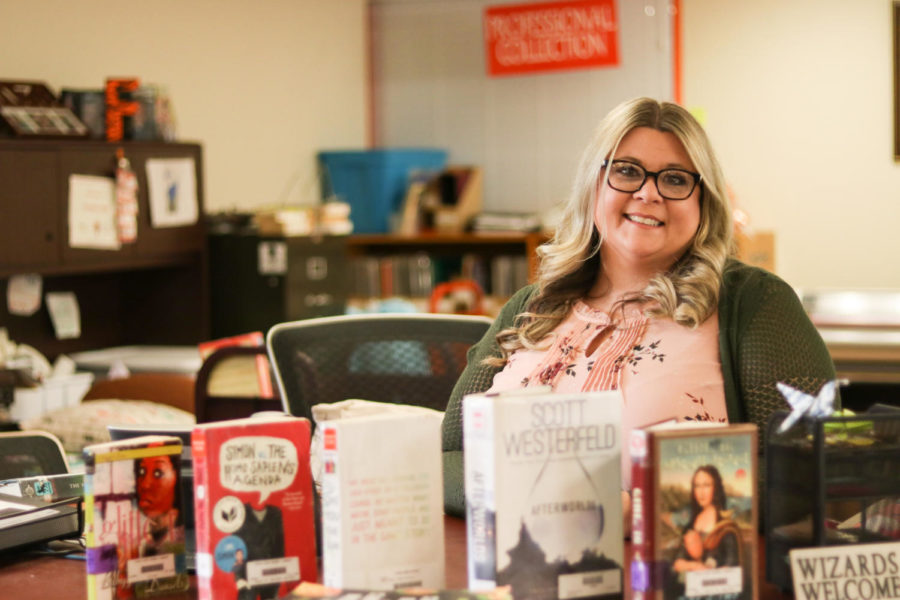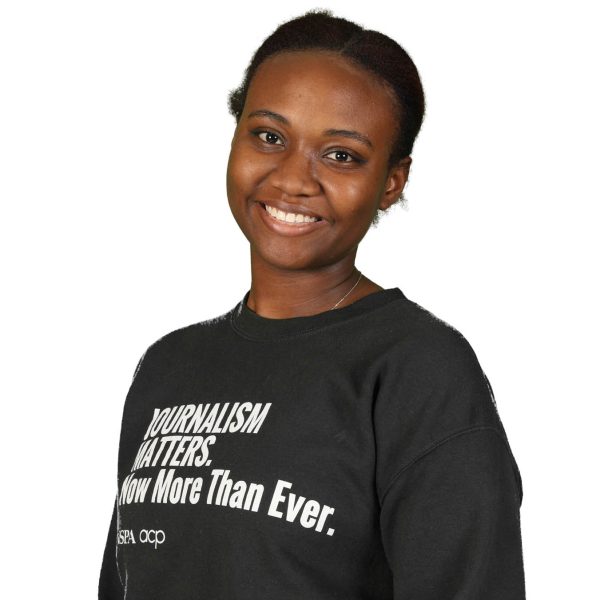Officially offensive
Legislature takes aim at ‘distressing’ books
Photo by Truth Dukes
December 17, 2021
When students come into the library, librarian Brooke Ferguson hopes they’ll see something offensive on the shelves. This way she knows there’s something for everyone in her library.
However, there are some legislatures that don’t agree with this mindset.
The Texas Association of School Boards has received multiple letters from Texas Gov. Greg Abbott in regards to the removal of “obscene” or “offensive” books in Texas public school libraries.
In late October, Texas Rep. Matt Kraus released a 16-page list of 850 books that may contain objectionable material. Among the titles on this list were books that related to racism, teen pregnancy, the LGBTQ community and human rights.
“When we start picking and choosing whether or not something can be offensive by just simply sitting there and existing, then we’ve opened up this huge chasm where anybody can say, ‘I’m offended by this,’” Ferguson said. “What book is left?”
Books relating to minorities and civil rights movements from recent years also appear to be targeted.
“This whole world is made up of minority groups,” junior Faith Lockett said. “I don’t think those books should be removed simply because people need to learn about that stuff. Those books help people.”
Abbott claims that a growing number of parents are concerned by the arguably inappropriate content, specifically pornography, being found in school libraries. When TASB failed to respond to Abbott’s letter, he directed his intentions to the Texas Education Agency, the Texas State Library and Archives Commission and the Texas State Board of Education.
However, materials for libraries are largely decided on the local level.
“In this library in particular, I’m the one who selects them,” Ferguson said. “Anybody who wants to can suggest, ‘Can we get this book?’ If I look at it, and it seems OK, then we get this book. We have a pretty strongly diverse library. We have a lot of the books on that list.”
Ferguson’s problem with the controversial initiative is that she doubts legislatures have read all 850 books on the list.
“My opinion is that [Abbott] should follow our policy if he wants to ban the books, and our policy is that the first thing you need to do is to read the book,” Ferguson said. “That’s the standard supported by the American Library Association’s policy for if you want a book banned.”
In his letter, Kraus asked that districts identify the number of copies of books found on his list, the funds spent on these books and the location of them on campus.
In addition, he asked districts to identify any other books or content containing “material that might make students feel discomfort, guilt, anguish or any other form of psychological distress because of their race or sex or convey that a student, by virtue of their race or sex, is inherently racist, sexist or oppressive.”
“Students have the right to read,” Ferguson said. “You have the right to read and learn about any bit of information that you want to learn about. They don’t get to monitor that for the purpose of censoring it.”
Even books like “I’ll Give You the Sun,” “The Magic Fish” and “The Confessions of Nat Turner,” all award-winning novels, are on the list. However, books that someone would expect to see on the list are absent; novels that most would deem far more “offensive” than those.
“I think that every good library should have books that offend everyone,” Ferguson said. “In other words, it should be such an inclusive collection of materials that people could say, ‘This is offensive to me.’ That’s the point, there’s something for everybody.”
















